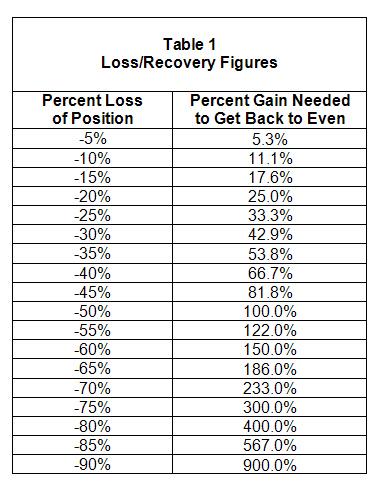Archives of “Education” category
rss53% of Indian population has ‘No-Class’ – Montek Singh Ahluwalia
Centralised – Decentralised – Distributed

Year-to-date asset class returns
Techniques to Control risk and Increase Safety
- Before taking a position, know the amount you are willing to lose. -Marty Schwartz
- If a stock drops 7% below my purchase price, I will automatically sell at the market–no second guessing, no hesitation. -William O’Neil
- You should always have a worst case point. The only choice should be to get out quicker. -Richard Dennis
- I have a mental stop. If it hits that number, I am out no matter what. -Paul Tudor Jones
- Combine that long-term objective with a protective stop that you move as the position goes your way. -Gary Bielfeldt
- I set protective stops at the same time I enter a trade. I normally move these stops to lock in a profit as the trend continues. -Ed Seykota
- Risk management is the most important thing to be well understood. Under-trade, under-trade, under-trade is my second piece of advice. Whatever you think your position ought to be, cut it at least in half. My experience with novice traders is that they trade three to five times too big. -Bruce Kovner
- Why risk everything on one trade? why not make your life a pursuit of happiness rather than a pursuit of pain? -Paul Tudor Jones
- Never risk more than 1% of your total equity on any one trade. By risking 1% I am indifferent to any individual trade. Keeping your risk small and constant is absolutely critical. -Larry Hite
- The key is to lose the least amount of money when you are wrong. -William O’Neil
- You have to minimize your losses and try to preserve capital for those few instances where you can make a lot in a very short period of time. What you can’t afford to do is throw away your capital on suboptimal trades. -Richard Dennis
- Most traders have a tendency to take risks that are too large at the beginning. They tend not to be selective enough when they take risks. – Gary Bielfeldt
- The object is always to minimize your risk. -Tom Baldwin
- No matter what happens, I know my worst case. My loss is always limited. -Tony Saliba
- You might have a low-risk trade, but if you are afraid, you probably will not take it.
Capital takes the elevator up growing but the stairs down when destroyed.

What is a loser?
 If you lose something, this does not make you a loser, and the same if you repeatedly try something and fail in the attempt.
If you lose something, this does not make you a loser, and the same if you repeatedly try something and fail in the attempt.
Being a loser is a state of mind wherein the person loses as a way of life. They lose in their mind before trying and so never try. They preempt impending imagined loss as a knee jerk reaction to all incoming unusual events in life.
Losers are everywhere in all walks of life; I’d dread to think what percentage of the population are infected with this mindset but it must be high. Some other typical traits that losers have is that they cannot see opportunity when it is staring them in the face, and they also cannot think outside the box of their own limited mental structure, and of course they think things are impossible.
Here are some examples of meeting losers in my own life. Just yesterday I had the experience of dealing with them. Having finished a business meeting hours early I went to the airport as I figured that afternoon flights would be empty and I could plane hop. I do this all the time with Quantas, but on this occasion I was unfortunate enough to be booked on Virgin Blue. The dozey girl behind the checkin counter looked momentarily at my ticket and said without looking up from her screen, “you cannot change flights, sorry.”
I looked at her. I said “so you mean that even if there are loads of empty seats on the next two flights I still have to wait?”
She said “Yes.” – end of conversation.
…LOSERS! Virgin Blue cannot see that the difference between customer satisfaction and frustration costs them NOTHING. Here’s an example of not being able to see opportunity when its staring you in the face. (more…)
True Picture About Government -Citizens-Banks
Theory of Sell in MAY
In the table to theLeft (click to zoom) I show how the stock market’s best 6 months of the year has evolved over the last 80+ years. Each row represents 20 years. Red cells denote the “best” 6 months.
Recall that the “sell in May” rule is based on November through April being the best half of the year.
Stock Market is like a Beauty Contest

The stock market is the type of beauty contest in which you choose the girl that most others will find most beautiful, not the girl you find most beautiful.





